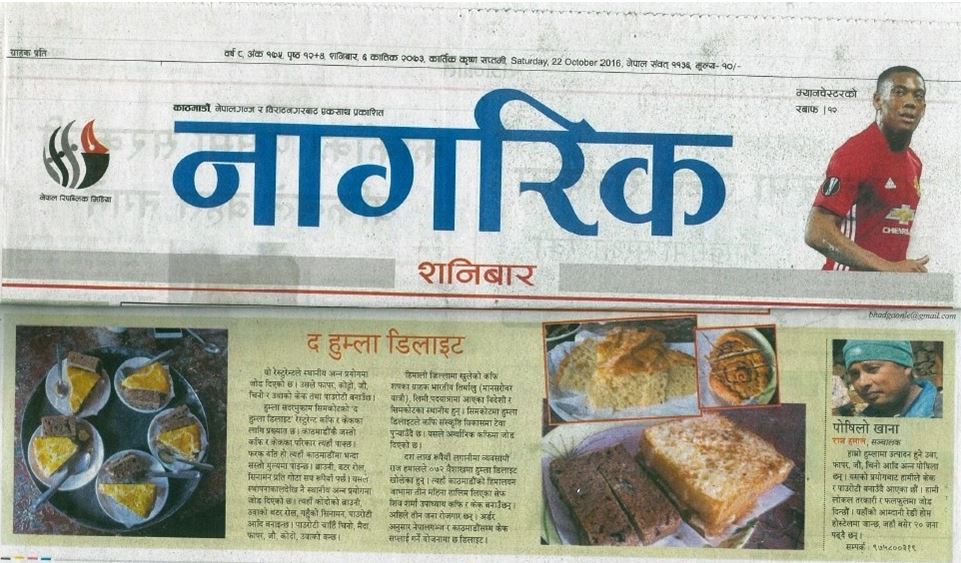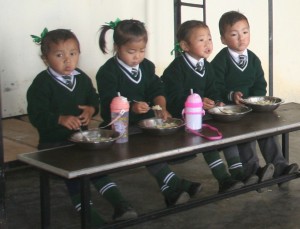Request for library at Munsel-ling School
Munsel-ling School has requested help to update its tiny library – see the TRAS Winter 2016 newsletter for budget details. TRAS member Carole Nakonechny has visited the School and believes strongly that there is a real need for a better library at the School. She writes:
Lama Tashi and his 600 students at Munsel-ling School need the support of the TRAS community.
I was an “accidental tourist” at Munsel-ling in the summer of 2014. I was actually on my way to meet friends and eventually trek the Parang-La, a high altitude pass in the nearby mountain ranges. I am a retired ESL teacher so news of an amazing school in the vicinity got me to Rangrik village instead. Some in-depth observation and volunteer work could be possibilities
Not to be. It was school holiday time. The rows of barracks-like school buildings were nearly empty. Sean and Diya , articulate young British volunteers had just finished a six month stint teaching science and English at the “school at the end of the universe” We managed to talk, while they packed, about their experience of teaching at Munsel-ling, the triumphs and the issues. Some older boys were then requisitioned to give me a guided tour around the premises.
Then Lama Tashi, the founder of the school, arrived and stole my heart in no time at all. He told me about his aspirations as a young monk, and his decision to “do social work” by which he meant dedicating his life to Munsel-ling School. The next day he drove me up to Kibber, the highest inhabited village in India to start my trek.
Spiti, the location of Munsel-ling School, is one of the most isolated regions in India. The mountain landscape is very dry and rugged, massive in scale. Winter brings fierce cold and isolation; Spiti is unreachable by any roadway for seven months of the year.
The problem of delivering curriculum in English to students who do not speak it as a home language is a challenge anywhere. Munsel-ling School, located in this remote Himalayan region, faces some severe obstacles.
The students’ home language is a dialect of Tibetan, informally referred to as Bhotia . They come to school from remote villages, grounded in a rich culture but literacy in any language whether Bhotia, English or Hindi is rare.
Munsel-ling is an English medium school; the language of instruction is English, right through to Grade Twelve. Even if basic literacy is acquired first in Bhotia/Tibetan language and script, English still lies in ambush for the students, as do the government examinations.
Diya Gupta, the volunteer teacher whom I met on site at Munsel-ling, writes in her blog “Learning English: Now that is a slow process for students for whom it is very much a foreign language. And the onerous Indian syllabus that requires me to teach collective and abstract nouns, modals and auxiliaries: things that are a mystery for most British people”
For these students to achieve literacy in English there is only one route. They must, must read, read for hours. They do not come from a print saturated environment as we do. Language is all around us: in texts, iPads, notices, magazines, and newspapers, sub-titles, traffics signs, and Google. Not to mention fiction and non-fiction. Our second language learners in ESL classes step out of school into a sonic boom of English.
The kids from Munsel-ling have their laborious English class, intermittent internet IF they can access some-one else’s device, and now and again, international volunteers.
These students are young and therefore able to learn language rapidly; however they need some form of English immersion. A well-stocked library would be the best resource possible to support English language acquisition.
Diya, the British English teacher, took time out from her packing frenzy to show me the Munsel-ling library. We walked across the grounds together and into a deserted classroom block. She unlocked the door and I peered into the dingy half-light.
I stood there, my mind blank, not understanding what I saw. “You mean this one giant book shelf. That’s it? That’s the only library they have?”
Old editions of the classics Huckleberry Finn, Great Expectations, dictionaries, work books, degraded magazines, some Indian folk tales and National Geographics. Stacks of old tests. Piles of detritus.
The library was extinct.
“They do have their text-books…” Diya said, her head down as she locked up.
TRAS is now in the process of raising funds to give them the library which is so crucial in their development as students and English language learners.
Funds needed for the complete library: $19,591


